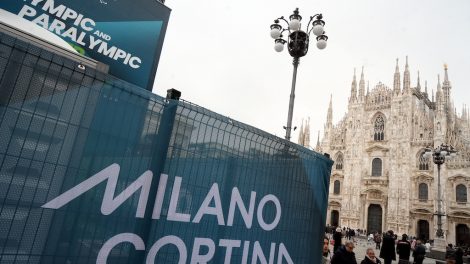Decoding the news. In an open letter collected by Corriere della Sera, forthy prominent former Italian former ambassadors called on the government to formally recognise the State of Palestine and to suspend all military cooperation with Israel.
- The appeal came on the eve of the United Nations conference on the situation in Gaza, currently underway in New York.
- The former diplomats’ initiative reflects a broader shift in European sentiment. French President Emmanuel Macron has announced that France intends to recognise the State of Palestine in the coming months, which will also reinvigorate the political debate in Italy.
Notable signatories. Among those who signed the letter are several high-profile figures in the history of Italian diplomacy, including:
- Pasquale Ferrara, former Director General for Political Affairs at the Italian Foreign Ministry.
- Piero Benassi, former diplomatic advisor at Palazzo Chigi;
- Rocco Cangelosi, former advisor to the President of the Republic;
- Ferdinando Nelli Feroci, former European Commissioner;
- Pasquale Quito Terracciano is an ambassador to key global capitals;
- Stefano Stefanini is a former Permanent Representative to NATO;
- Antonio Armellini, a former advisor to Aldo Moro and a key figure in Italian diplomacy;
The government’s position. Prime Minister Giorgia Meloni reaffirmed the government’s line in an interview with La Repubblica. While supporting the eventual creation of a Palestinian state, she opposes recognising it “in advance” of a concrete process leading to its establishment.
- “Recognising the State of Palestine, without there being an actual Palestinian state, could be counterproductive,” she stated.
Italy’s vision rests on three main pillars:
- A concrete political process: Recognition should occur only as part of a realistic, multilateral effort grounded in mutual recognition between Israel and Palestine.
- Reforming UNRWA: Rome advocates for reforming the UN agency for Palestinian refugees, focusing on greater transparency and efficiency.
- Security as a prerequisite: Any diplomatic progress must be accompanied by a tangible commitment from Palestinian authorities to fight terrorism — particularly Hamas and affiliated groups — and to stabilise the territory.
Ambassador Mattiolo’s perspective. Ambassador Luigi Mattiolo, who served as diplomatic advisor to the Draghi and Conte governments, explained to our sister website Formiche.net why he declined to sign the letter.
- While expressing his “deep respect for the signatories, many of whom I have known for decades through both professional and personal ties,” Ambassador Mattiolo said his decision is rooted in two key considerations:
- “First,” he said, “I do not believe that a unilateral recognition of the State of Palestine can, at this stage, help trigger a genuine negotiating dynamic.
- “Second, I am convinced that such recognition should be matched by an equally meaningful gesture on the Palestinian side: the recognition not only of the State of Israel, but also of its Jewish character.”
Italy at the United Nations. Undersecratary to Minister of Foreign Affairs Maria Tripodi heads the Italian delegation at the New York conference. In the meantime, in a preparatory call with her Egyptian counterpart, Badr Abdelatty, Foreign Minister Antonio Tajani reiterated Italy’s approach:
- Continued humanitarian commitment, primarily through the Food for Gaza program.
Firm opposition to any forced displacement of the Palestinian population. - Support for the Egyptian reconstruction plan, adopted by the Arab League and the OIC.
- The urgency of reviving an inclusive political process toward a two-state solution.
What we’re watching
What we’re watching. Italy is proceeding with caution and pragmatism. Even among senior diplomatic figures, different sensitivities are emerging, but the government’s position remains anchored in balance, gradualism, and a security-first mindset.
- “We want to offer a constructive contribution, not polarise the discussion or engage in slogans,” says a source within the Italian government.





